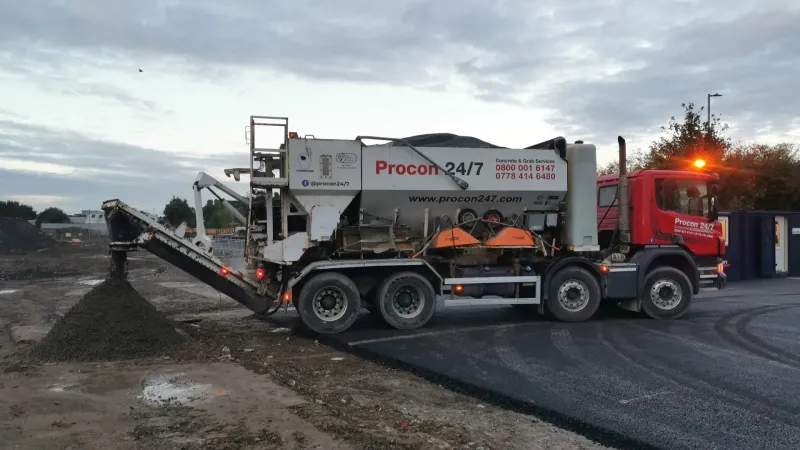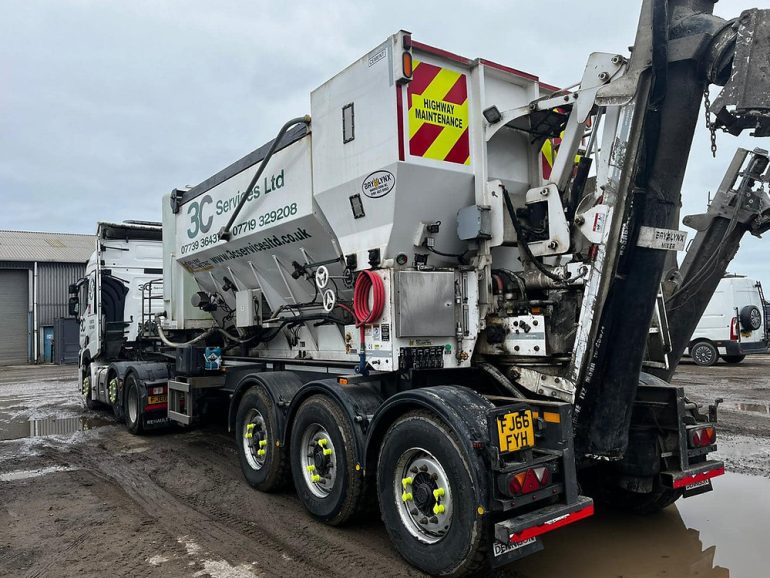Plant manufacturers and operators have expressed concerns over new legal weight restrictions on mobile concrete mixers, fearing significant financial repercussions. The government has decided that from 2028, volumetric concrete mixers (VCMs) must adhere to the standard weight limit of 32 tonnes, down from the current 44 tonnes.
This decision follows a two-year inquiry by the Department for Transport (DfT), which ultimately rejected industry calls for an exemption. The Batching On Site Association (BSA), a trade body representing VCM operators, has argued that the new rules will lead to increased operational costs and more frequent deliveries.
Infrastructure Strain and Environmental Costs of Reducing VCM Weight Limits
The government’s decision was largely influenced by a National Highways report, which found that the excessive weight of VCMs placed 17% more strain on bridge structures compared to vehicles operating within standard weight limits. This raised concerns about accelerated wear and tear on existing infrastructure, as well as the potential impact on bridge durability and lifespan.
While the DfT emphasized the importance of road safety and maintenance, the industry has countered that the alternative—more frequent trips with smaller loads—could increase road congestion and emissions, negating the intended benefits.

According to a separate study commissioned by the BSA, reducing the weight of VCMs will result in an additional 598,000 journeys per year, representing a 20% increase. The BSA estimates that this change will require at least 200 more VCMs on UK roads, leading to an extra 120,000 tonnes of CO2 emissions annually. Additionally, nitrogen oxide and particulate emissions are expected to rise, alongside fuel consumption, vehicle maintenance costs, and overall carbon expenses exceeding £7 million per year.
Debate Over Weight Limits: Balancing Industry Needs and Environmental Concerns
Liberal Democrat MP Alistair Carmichael has been a vocal opponent of the weight limit reduction, arguing that VCMs have operated within a fair regulatory framework for decades. He highlighted that until 2018, VCMs with four axles could function at manufacturer-recommended weights of around 41 tonnes.
However, the 2018 decision to enforce a 32-tonne limit required operators to transition to lighter vehicles, which are less efficient and necessitate more trips. Carmichael and other industry stakeholders argue that these additional journeys contradict the government’s broader environmental goals.
In response to parliamentary questions, Transport Secretary Lilian Greenwood defended the decision, stating that any policy changes must balance road safety, infrastructure integrity, environmental impact, and market fairness. The DfT report confirmed that the existing weight rules would remain in place only until 2028, allowing the industry time to adjust.
Robert McIlveen, public affairs director at the Mineral Products Association, supported the decision, asserting that the 2018 regulation struck a fair balance between regulatory oversight and industry transition. He emphasized that this move would ultimately benefit road maintenance and safety.

